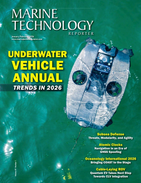Marine Technician Career Details
In addition, marine mechanics must be able to handle boats of all types and sizes – personal boats such as PWCs, yachts, small boats, or commercial boats, ferries, fishing and military boats. When it comes to large vessels, these usually have diesel or gas engines, which a mechanic must be able to handle, but most of the times he can only remove them for further inspection on shore. Because these are complicated machineries, the work on the engines must take place on the dock or marina, in specialized repair shops, where technicians have more instruments and equipment to work with. Marine technicians begin their evaluation of the problem with a thorough inspection of the vessel, to figure out whether the electrical or the mechanical part of it is damaged. Once the problem has been identified, the mechanic needs to estimate the time required for the repair, the costs and the best strategy to fix the vessel. Equipment maintenance is a must, as the mechanic must be able to replace any part of the vessel that has suffered irremediable damage and ensure that the substitute items are also in compliance with all the safety regulations that apply to that particular boat.
Other maintenance tasks are also a part of a marine mechanic’s life, because a boat, especially a large vessel, must be constantly checked for safe operating conditions. It involves a thorough inspection of the vessel and testing of every piece of mechanical and electrical equipment in order to detect possible problems. If the marine technician finds any problem, he must disassemble the motor of the boat and test every part. The damaged parts must be replaced with the equipment the mechanic has in store or the mechanic will recommend the best place where such parts can be purchased.
A marine technician must also be able to provide service and maintenance for the generator of the boat, and replace any wires, pumps, gear and rings and also realign the steeling. In case of engine testing, smoke or vibrations are usually the signs that the engine is damaged and the technician must be able to detect and interpret these signs.
Education requirements for marine technician jobs It is not absolutely necessary for an applicant to have graduated from college or posses a master’s degree if he wants to occupy a marine technician job, even though an employer would rather prefer to hire someone with these degrees, instead of a high-school graduate. When it comes to trainings and certifications, marine technicians do not need them, however those who posses such documents are more likely to be hired. Preferences is given to those individuals who have previous work experience in a similar position and, if possible, in a closely related field. Mechanics with extensive experience usually train the new comers on-the-job.
As mentioned, having a certificate or a university diploma can help the applicant for marine technician jobs gain a real advantage. Such a certificate can significantly raise the remuneration as well. There is no mechanic that is specialized in anything related to marine technology, this is why, when attending a profile university or high-school you need to select your desired specialization. Accredited universities diplomas also offer the applicant a good advantage over his competitors. Many universities throughout the US offer specializations in marine technology.
For instance, the Universal Technical Institute, Inc. is accredited by the Accrediting Commission of Career Schools and Colleges (ACCSC), which is a nationally recognized accreditation agency. It includes the Marine Mechanics Institute (MMI) and has extensive and exclusive partnerships with large companies in the industry. CUNY Kingsborough Community College in New York is a famous public school that offers a 4-year study program and is included in The City University of New York. It is one of the most famous colleges in the country, which provides an associate degree program in maritime technology called the AAS Maritime Tech. The Mississippi Gulf Coast Community College also offers a reliable mechanical engineering technology program.
How to get a marine technician job Individuals applying for a marine technician position can either go for the recreational marine industry, marine military, ocean science and research field, or marine commerce. They are usually employed by marinas, vessels builders, marinas or repair yards to provide maintenance and general repair services. However, they can also be employed as marine computer technicians and the level of expertise required by these positions is completely different.
Some manufacturers offer special training to those hired on new entry levels of marine technicians. Because every engine manufacturer has a different technique, attending their instructional courses can be of great use in your future job, since no one knows the product better than the ones who created it. Having a certificate of training graduation from one of these manufacturers can be a great advantage in a future job interview for a marine technician position. In addition, a marine technician who needs to work with warranty engines must posses a certificate issued by the manufacturer of that particular type of engine. Those hired directly by manufacturers or insurance companies have to follow a compulsory training.
There has been a slight increase in the job offers as marine technicians within the past few years in the US. Those hired first were the ones who either had university or master’s degrees, or underwent specialized training by engine manufacturers. Employees with previous similar work experience also gain advantage. Unfortunately, the advancement possibilities are extremely limited, as they can only advance to supervising teams in large companies or marinas. Those who have the financial means can open up their own boat service and sales.













 February 2026
February 2026



